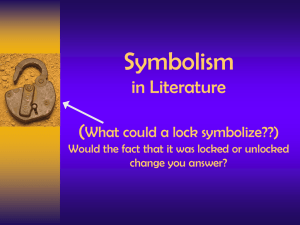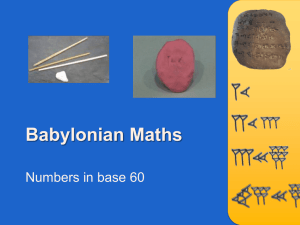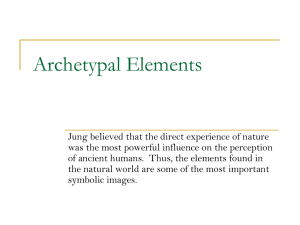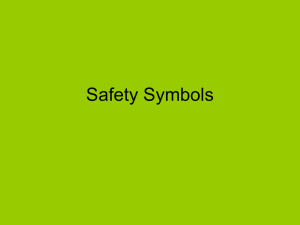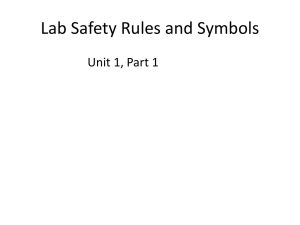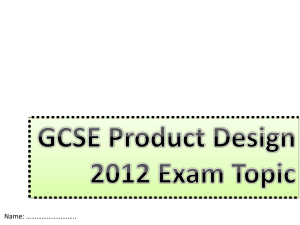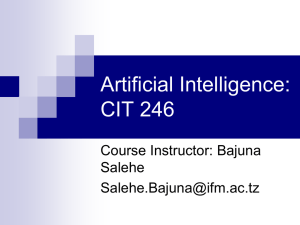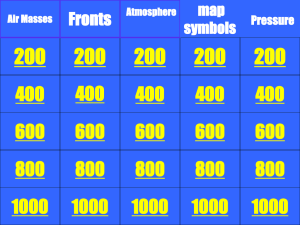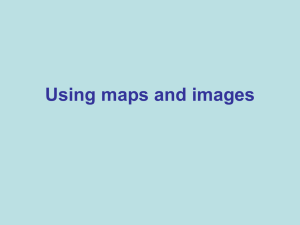The physical symbol system hypothesis
advertisement
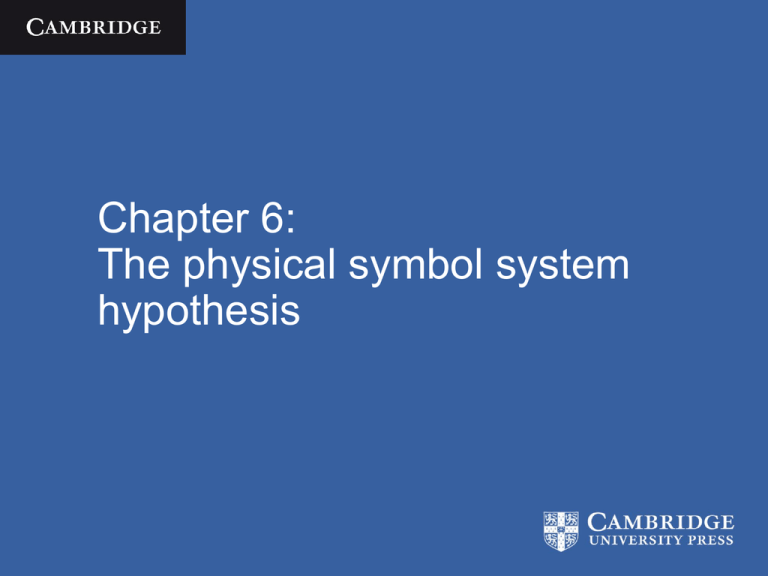
Chapter 6: The physical symbol system hypothesis Mental architectures approach Starts off from the basic assumption that cognition is a form of information-processing Assumption governs all levels of organization (from neurons upwards) and almost all explanatory models/hypothesis within the individual cognitive sciences Aims to integrate the cognitive sciences at different levels of explanation/organization through (1) a model of information-processing (2) a model of functional organization Mental architecture A mental architecture is a model of how the mind is organized and how it works to process information 1) In what format does a cognitive system carry information? 2) How does that system transform and process information? 3) How is the mind as a whole organized into informationprocessing sub-systems? Two models of informationprocessing The physical symbol system hypothesis • e.g. Turing machine model of informationprocessing • associated with classical, symbolic AI Connectionism/artificial neural networks • neurally-inspired models of informationprocessing • used to model cognitive/perceptual abilities that have posed problems for classical AI 1975 Turing Award • Given by Association of Computing Machinery to Allen Newell and Herbert Simon – pioneers of AI • Logic Theory Machine (1957) • General Problem Solver (1956) • Newell and Simon used their Turing lecture to deliver a manifesto about the basic principles for studying intelligent information-processing Laws of qualitative structure Basic principles governing individual sciences Biology: The cell is the basic building block of organisms Geology: Geological activity results from the movement of a small number of huge plates AI/Cognitive Science: The physical symbol system hypothesis The physical symbol system hypothesis A physical symbol system has the necessary and sufficient means for intelligent action Necessity: Anything capable of intelligent action is a physical symbol system Sufficiency: Any (sufficiently sophisticated) PSS is capable of intelligent action Four basic ideas (1) Symbols are physical patterns (2) Symbols can be combined to form complex symbol structures (3) The system contains processes for manipulating complex symbol structures (4) The processes for representing complex symbol structures can themselves by symbolically represented within the system Thinking and the PSSS • The essence of intelligent thinking is the ability to solve problems • Intelligence is the ability to work out, when confrionted with a range of options, which of those options best matches certain requirements and constraints • Problem-solving is relative to a problem-space Specifying a problem in AI • Basic components of a representation • description of given situation • operators for changing the situation • a goal situation • tests to determine whether the goal has been reached • Problem space = branching tree of achievable situations defined by potential application of operators to initial situation [e.g. chess] Problem-solving Problem-spaces are generally too large to be searched exhaustively (brute force algorithms) Search must be selective heuristic search rules • effectively close off branches of the tree • e.g. in chess: “ignore branches that start with a piece being lost without compensation” Combinatorial explosion! • With n connected cities there are (n – 1)! possible paths through the search space • This can be reduced to 2n • But it would take a computer processing 1,000,000 possibilities per second over 30 years to solve a 50 city TP problem by brute force search Heuristic search hypothesis Problems are solved by generating and modifying symbol structures until a solution structure is reached • GPS starts with symbolic descriptions of the start state and the goal state • aims to find a sequence of admissible transformations that will transform the start state into the goal state Heuristic search and algorithms • The PSSH is a reductive characterization of intelligence • It is only illuminating if physical symbol systems are not themselves intelligent • This means that the physical symbol systems must function algorithmically Illustration: Missionary and cannibals Symbolic representation of state as mcb m = number of missionaries on starting bank c = number of cannibals on starting bank b = number of boats on starting bank Start state Goal state = = 331 000 Permissible transformations? Permissible transformations micibk either or or or mi+1ci+1b1-k where difference between mi and mi+1 = 2 and difference between ci and ci+1 = 0 difference between mi and mi+1 = 1 and difference between ci and ci+1 = 1 difference between mi and mi+1 = 0 and difference between ci and ci+1 = 2 either the difference between mi and mi+1 = 1 or the difference between ci and ci+1 = 1 Impermissible states A branch ends if it reaches a state mcb where c>m [more cannibals than missionaries on R bank] (3 – c) > (3 – m) [more cannibals on L bank] mcb has already appeared earlier in the tree The overall lie of the land • The language of thought hypothesis is a specific proposal for developing the PSSH • The example of WHISPER shows that symbol structures can be pictorial • The contrast class for the PSSH is the class of neural network (connectionist) models
